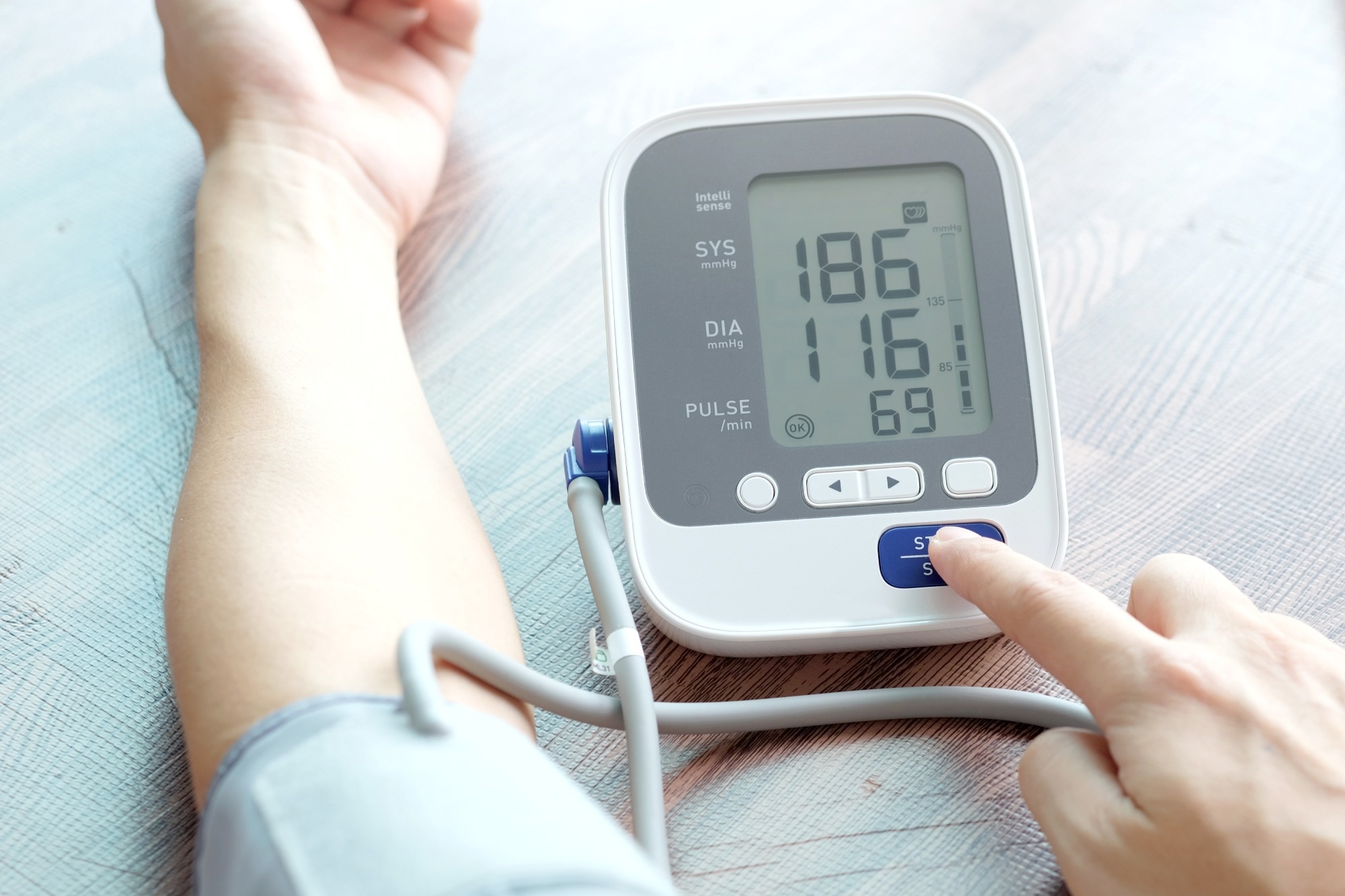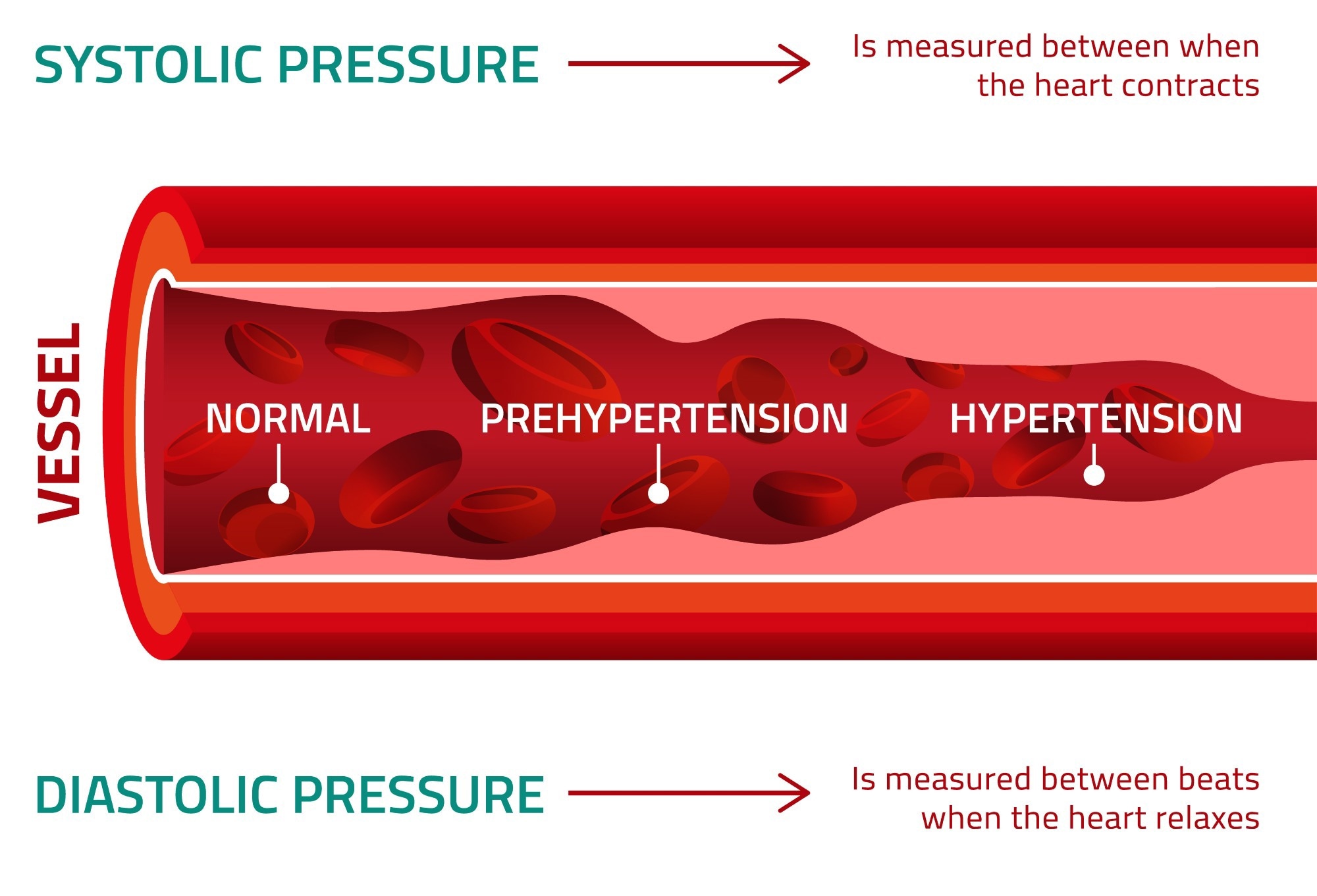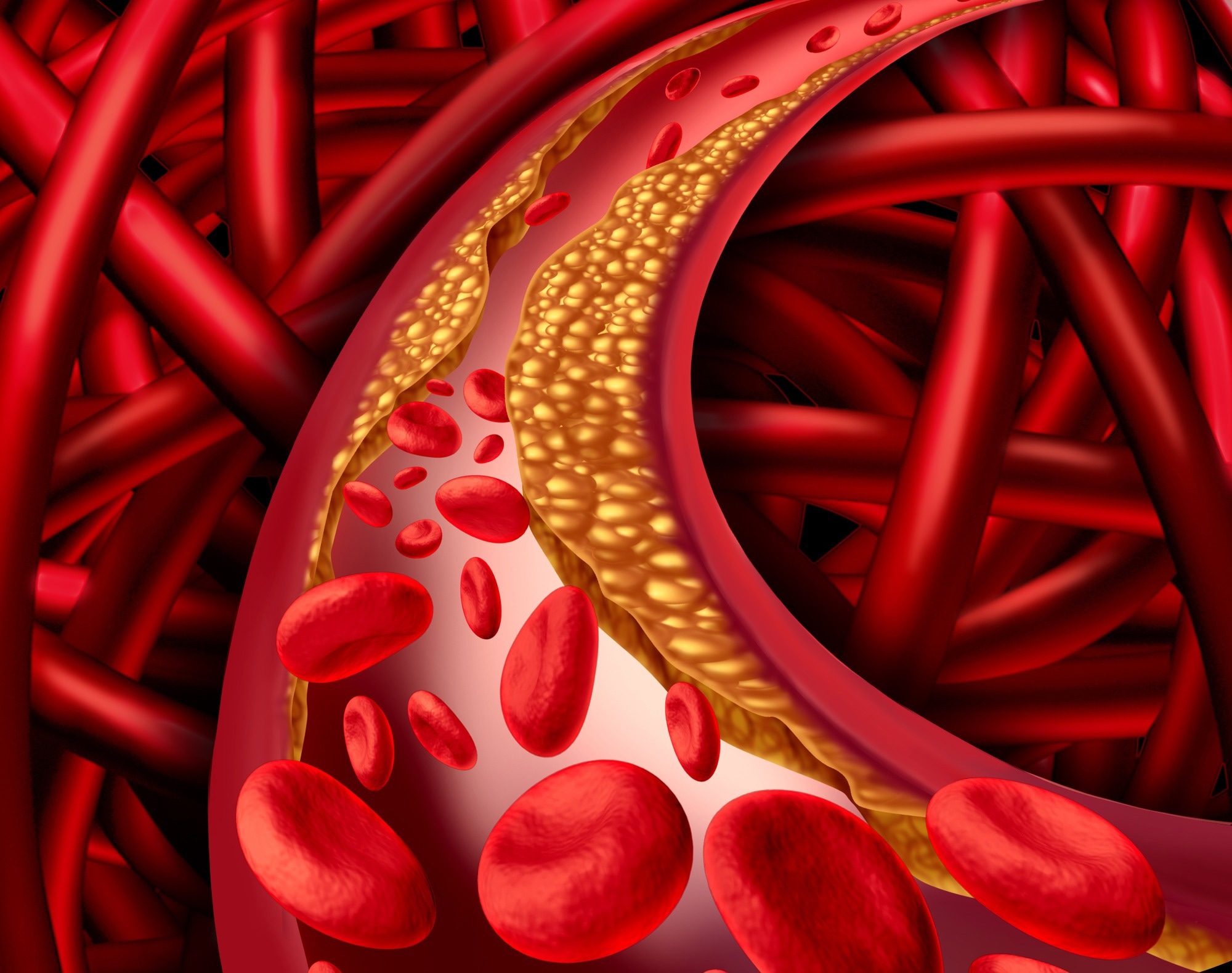Introduction
Impact of hypertension on health
Types and risk factors for hypertension
Risk factors for hypertension
Diagnosis and management of hypertension
Lifestyle changes
Alcohol
Diet
Blood pressure drugs
References
Further reading
Introduction
Blood pressure (BP) is the term used to describe the pressure exerted on the arterial walls as blood flows through them, and blood pressure consistently higher than normal is referred to as hypertension. A blood pressure reading has two components: systolic BP and diastolic BP. The pressure in arteries when the heart beats is known as systolic BP, and the pressure in arteries when the heart rests between beats is known as diastolic BP. The BP reading for a healthy individual would be ≤120/80 millimeters of mercury (mmHg), with the upper and lower values denoting systolic and diastolic BP, respectively.
Blood pressure fluctuates throughout the day, rising on physical exertion or during stressful moments when the heart may pump harder. Age also influences blood pressure, as the walls of the blood vessels become harder and less elastic with age, leading to higher systolic and diastolic BP values. If an individual has smoked, drank alcohol, consumed caffeine, or exercised within 30 minutes of having his/her blood pressure measured, the BP reading may be higher. Further, crossing legs and letting the arms droop at the side rather than rest on a table at chest height can increase the BP reading.
According to the American college of cardiology/American heart association guideline for the prevention, detection, evaluation, and management of high blood pressure in adults (2017), a reading of ≥130/80 mm Hg is considered hypertension. According to the seventh report of the joint national committee on prevention, detection, evaluation, and treatment of high blood pressure (2003), a reading ≥140/90mm Hg is considered hypertension.
 Blood pressure monitor and heart rate monitor. Image Credit: Me dia / Shutterstock
Blood pressure monitor and heart rate monitor. Image Credit: Me dia / Shutterstock
Impact of hypertension on health
High blood pressure can adversely affect the heart, brain, kidneys, and eyes. The higher the BP levels, the greater the risk of developing health issues such as cardiovascular diseases, myocardial infarction, and stroke since high blood pressure can lower the elasticity of arteries which decreases the flow of blood and oxygen to the heart, leading to heart diseases, chest pain or angina, myocardial infarction, and heart failure.
High blood pressure can cause the arteries that supply blood and oxygen to the brain to burst or be blocked, resulting death of brain cells, causing a stroke and associated disabilities in speech, movement, and other basic activities and death. Having high blood pressure, especially in midlife, is linked to worsening cognitive function and dementia later in life. Hypertension can also lead to loss of vision, renal disorders and erectile dysfunction in men, and lower libido in women.
 Blood pressure is measured using two numbers: The first number, called systolic blood pressure, measures the pressure in your arteries when your heart beats. The second number, called diastolic blood pressure, measures the pressure in your arteries when your heart rests between beats. If the measurement reads 120 systolic and 80 diastolic, you would say, “120 over 80,” or write, “120/80 mmHg.”. Image Credit: Double Brain / Shutterstock
Blood pressure is measured using two numbers: The first number, called systolic blood pressure, measures the pressure in your arteries when your heart beats. The second number, called diastolic blood pressure, measures the pressure in your arteries when your heart rests between beats. If the measurement reads 120 systolic and 80 diastolic, you would say, “120 over 80,” or write, “120/80 mmHg.”. Image Credit: Double Brain / Shutterstock
Types and risk factors for hypertension
Hypertension can be classified into primary or essential hypertension and secondary hypertension. Primary hypertension refers to hypertension without a specific known cause. In people with this condition, the smaller arteries of the human body become narrower, due to which the heart has to pump harder to circulate blood to distant organs and limbs, raising BP.
Essential hypertension is observed in five percent of all cases of hypertension. Aging and unhealthy habits such as lack of physical exercise are most commonly associated with this type of hypertension. Secondary hypertension is usually the result of medical issues such as kidney or hormonal disorders or due to the use of certain medications.
Risk factors for hypertension
Family history: Hypertension, especially essential hypertension, often has a genetic basis and may run in families. People with hypertensive first-degree relatives are at an increased risk of developing hypertension.
Medical history: Hypertension may be associated with diabetes mellitus, renal disorders, Cushing's syndrome, lupus, pheochromocytoma, or adrenal tumors.
Drugs: Drugs such as non-steroidal anti-inflammatory drugs (NSAIDs), corticosteroids, oral contraceptives, antidepressant medications, and drugs of abuse such as amphetamine, methamphetamine, and cocaine may cause hypertension.
Other factors: The risk of hypertension varies by age, gender, ethnicity, diet, lifestyle habits, cholesterol levels, pregnancy, inadequate sleep, stress, personality type, and presence of viral infections such as severe acute respiratory syndrome coronavirus 2 (SARS‑CoV‑2) and the associated coronavirus disease 2019 (COVID-19).
Arteries get stiffer with age, elevating blood pressure. Before the age of 55 years, men have a greater chance of having high blood pressure, and women are more likely to have hypertension after menopause. African or Caribbean individuals have an increased risk of developing hypertension. A high dietary salt or caffeine intake and a low intake of potassium, fiber, and protein, fresh fruits, and vegetables can potentiate hypertension.
Habits such as smoking, tobacco and alcohol consumption, and lack of physical exercise can elevate blood pressure. High levels of low-density lipoprotein (LDL) or bad cholesterol can form plaques along tiny tears in the artery walls and result in atherosclerosis, making the arteries narrower and raising BP.
 Atherosclerosis. Image Credit: Lightspring / Shutterstock
Atherosclerosis. Image Credit: Lightspring / Shutterstock
Individuals with inadequate sleep, type A personalities and high-stress levels are prone to hypertension. Hypertension can also occur during pregnancy (gestational hypertension) and lead to complications such as preeclampsia, eclampsia, stroke, and preterm delivery. Further, nervousness about having your blood pressure recorded at the doctor's office (white coat syndrome) may have higher than actual BP readings.
Recent studies have reported that COVID-19 increases systolic and diastolic BP and may cause new-onset hypertension due to the involvement of angiotensin-converting enzyme 2 (ACE2) in COVID-19. In addition, increased angiotensin II (ANG II) levels, ACE2 downregulation, and renin-angiotensin-aldosterone system (RAAS) imbalance in COVID-19 could elevate blood pressure.
Diagnosis and management of hypertension
Hypertension is called the "silent killer" since it usually may not present with warning signs or symptoms; however, high blood pressure could cause shortness of breath during light physical activity, lightheadedness upon standing too fast, and falls. Hypertension can be diagnosed by measuring BP readings using sphygmomanometers and BP monitors.
Lifestyle changes
Individuals can lower their blood pressure by making lifestyle changes such as by performing regular physical exercise (especially aerobic activities such as walking, biking, or swimming for ≥150 minutes weekly, about 30 minutes a day, five days per week), smoking cessation, diet modifications limiting sodium (salt) intake and management of alcohol, weight, stress, and blood glucose levels.
Alcohol
Men should not have more than two drinks a day, and women no more than one a day to lower their risk of hypertension. One drink is defined as one ounce of alcohol, five ounces of wine, or 12 ounces of beer. In addition, foods lower in fat, salt, and calories, such as skim or one percent milk, fresh vegetables and fruits, and whole-grain rice and pasta, are preferable for hypertensive individuals.
Diet
The optimal recommendation for salt in the diet is to have <1,500 milligrams of sodium per day. Foods high in fat and salt such as butter and margarine, fatty meats, whole milk dairy products, fried foods, processed foods or fast foods, and salted snacks must be avoided. The DASH (dietary approaches to stop hypertension) diet may be followed to keep BP values under the normal range.
Blood pressure drugs
First-line anti-hypertensive drugs include (i) ACE inhibitors such as enalapril and captopril that block ANG II production, (ii) ANG II receptor blockers (ARBs) such as metoprolol and losartan that block ANG II from binding with receptors in blood vessels, (iii) calcium channel blockers (CCBs) such as amlodipine and nifedipine that prevent calcium from entering the muscles of the heart and blood vessels and thereby allowing vascular relaxation, and (iv) diuretics such as indapamide and chlorothiazide that flush excess sodium from the body, reducing the amount of fluid in the blood.
Blood pressure: what causes high blood pressure?
References
Further Reading
Last Updated: Oct 11, 2023